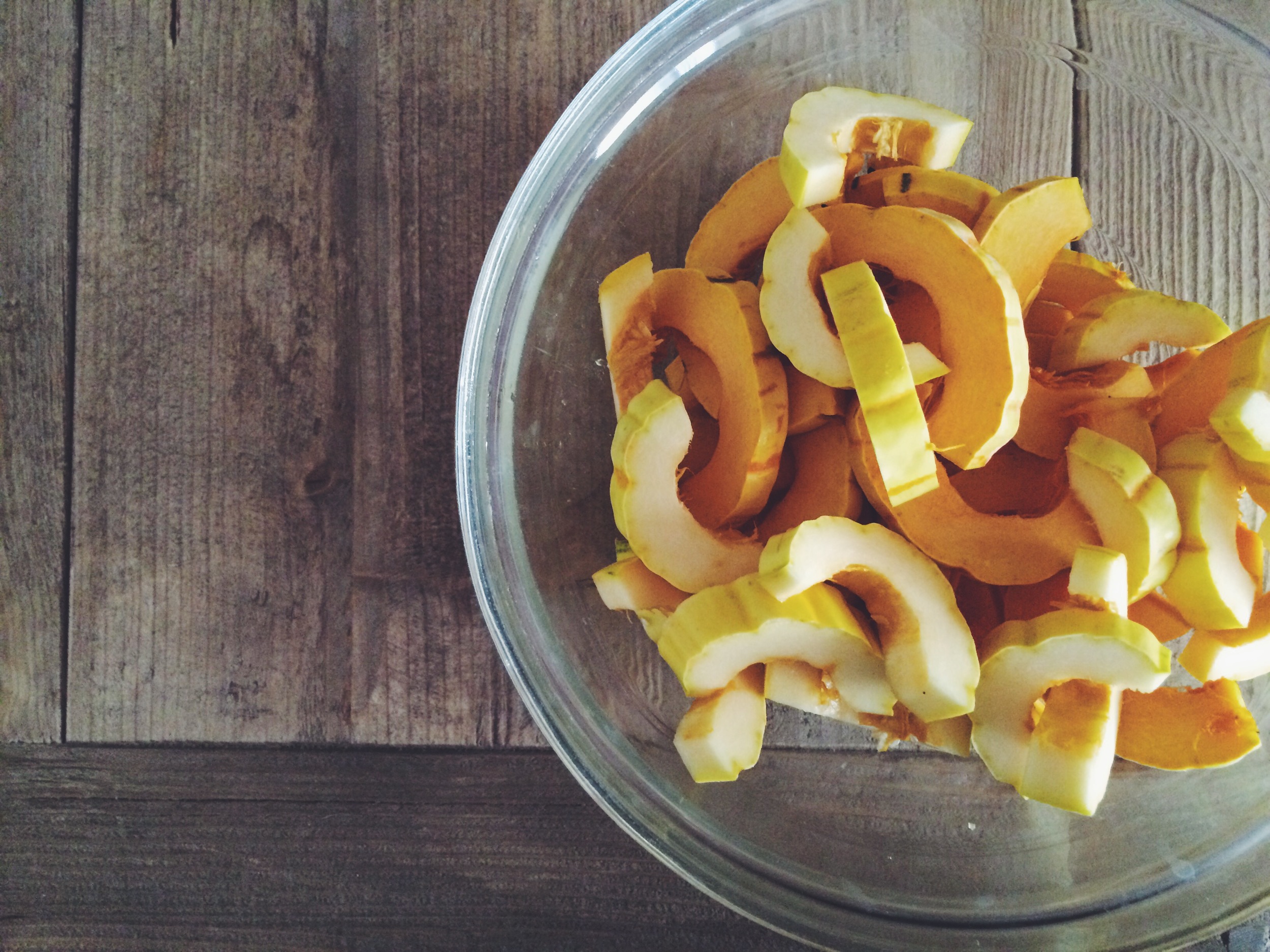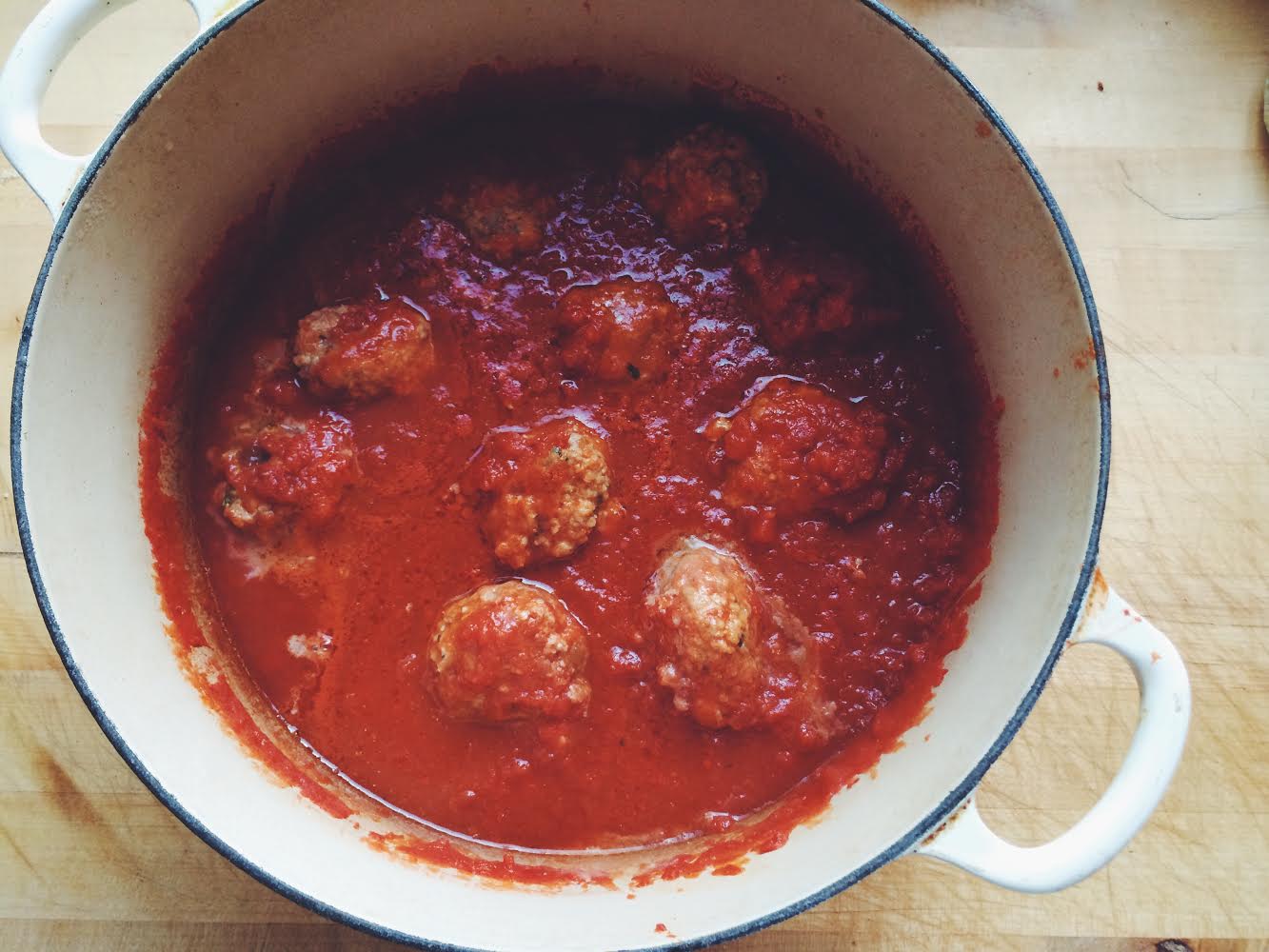"If we bring two casseroles to your place tomorrow, could you bake them? We only have room in our oven for the turkey!"
This was Emily's text the Friday before Friendsgiving, and it made me smile because it seemed very much like a thing friends and neighbors would do. Now that we both live within a mile of each other, it was an easy yes.
Our Supper Club had decided to throw a Thanksgiving-themed dinner in late October, because with all the holidays coming up, we knew it might be our last chance to get together before the end of the year, at least in an official Supper Club capacity. So on Saturday morning I went to yoga, and when I came home, Emily's husband Chris was sitting in our living room catching up with Andrew, and the trays of stuffing and potatoes were on our counter with handwritten notes for how long to bake them.
True to the group's guidelines, we all did our part. Chris and Emily made the turkey and stuffing, Matt and Sarah brought mashed potatoes, rolls, and dessert, and I covered vegetables and gravy. Entertaining this way has been a true lesson in what really matters. For many of us Type A personalities, we like to do it all. We host, we make things from scratch, we insist on matching glasses. But the truth is, no one cares if one wine glass is smaller than another, or if we buy crackers instead of make them. When everyone brings something, we're all more relaxed and end up having a better time. I know this to be absolutely true.
I've heard people say that once they started practicing gratitude, they went through the day looking for it, because gratitude changes your brain chemistry, makes you happier, and helps you realize what's really important. And although the official Thanksgiving holiday was a month away, it got me thinking about all things I'm grateful for this year, and I hope you're moving into that space as well. Cheers to a wonderful holiday, wherever you are in the world!
“I have never interviewed a single person who talks about the capacity to really experience and soften into joy who does not actively practice gratitude.”
ROASTED DELICATA SQUASH WITH FETA AND HONEY
For one of my vegetable sides, I took a non-recipe approach. Don't feel intimidated in any way here, because that's the beauty of fall's squash family. A little roasting, a little drizzle of honey, and a sprinkle of herbs or cheese is really all you need.
I sliced the squash lengthwise, scooped out the seeds, then made 1/2-inch slices cross wise. Onto a baking dish they went, followed by a drizzle of oil and a sprinkle of salt and pepper. Once you mix it all together, spread them in an even layer. Bake at 400 degrees for about 20 minutes, or until beginning to brown in spots and the edges start to curl. Drizzle with warm honey and scatter with feta.
















